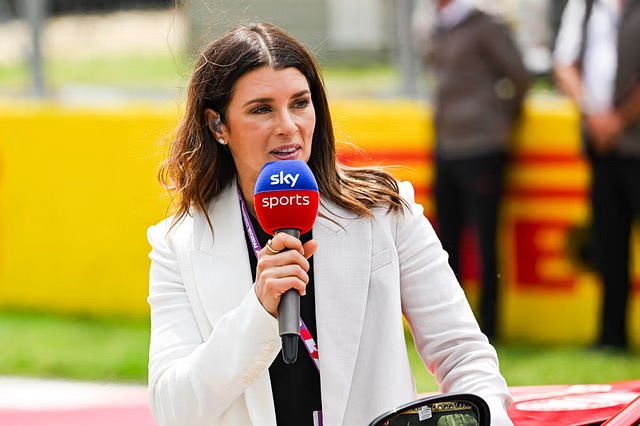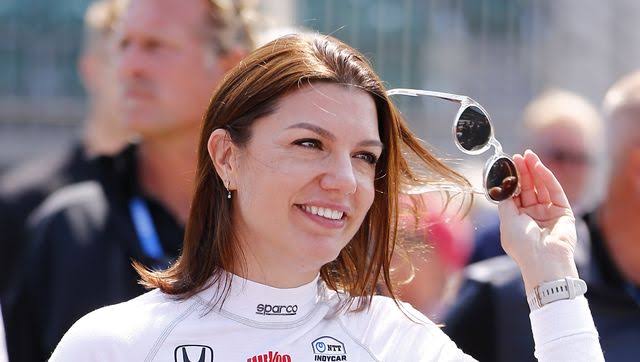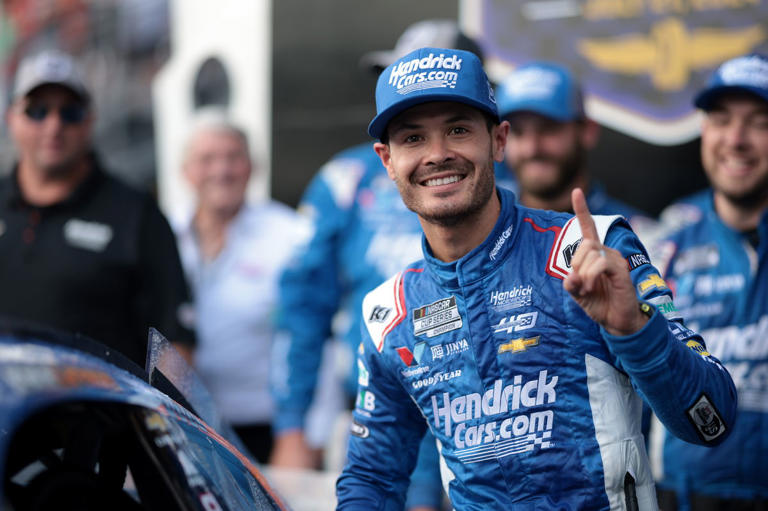Danica Patrick, who is often celebrated as a trailblazer for female racers in NASCAR, has recently weighed in on the contentious issue surrounding transgender athletes competing in women’s sports. During a conversation with former Wall Street investor Codie Sanchez, Patrick expressed her strong views on why she believes men should not be allowed to compete in women’s athletic competitions, citing significant biological differences.
Having built a remarkable career in a predominantly male sport, Patrick’s insights carry weight. She began her racing journey in karting and progressed through various series, including open-wheel racing and European road racing, before making a name for herself in the NASCAR national series. Her debut in NASCAR was marked by several groundbreaking achievements, including becoming the first woman to clinch a pole position in the Daytona 500 in 2013 and leading laps at Daytona. These milestones not only highlight her skill but also underscore her status as a pioneer for women in racing.
In her conversation with Sanchez, Patrick emphasized the physiological and hormonal advantages that men have over women in sports. She stated, “I was a girl in a guy’s sport. There are some true hormonal physiological reasons why men should not compete in women’s sports.” She elaborated on the differences in testosterone levels, noting that men have at least ten times more testosterone than women. This hormone plays a crucial role in developing lean muscle mass, size, and power, which Patrick argues creates an uneven playing field.
Patrick’s assertion is grounded in her experiences in racing, where she faced unique challenges as a woman. By highlighting these biological differences, she aims to advocate for the integrity of women’s sports, asserting that allowing transgender women (assigned male at birth) to compete against cisgender women undermines the fairness and competitive balance that women’s sports strive to maintain. Her comments echo a broader conversation in society about inclusivity versus fairness in competitive environments.
In addition to her views on gender and sports, Patrick has become increasingly vocal about her political beliefs. In recent months, she has faced backlash for attending a Turning Point USA conference alongside her sister, which she described as a significant experience for her. This event sparked criticism, particularly from those who perceived her political affiliations as controversial. However, Patrick has stood firm against this backlash, using her platform to express her pride in her American identity and her right to voice her opinions.
At a recent rally for Donald Trump in Las Vegas, she addressed her critics, stating, “I will not be judged for being a proud American.” She recounted her experience attending the conference, emphasizing the positivity she felt and the importance of supporting causes she believes in. “People looked at me like I was some radical, right-wing MAGA. And you know what, all it did was light a fire. I was like, I will not be judged to live in America, be an American, be a proud American. Say, I love America and want to make America great again. I won’t be judged for it,” she stated, reflecting her commitment to free expression.
Patrick’s willingness to engage in these discussions demonstrates her desire to use her platform for more than just racing. She aims to influence conversations about fairness in sports while navigating the complexities of political discourse. The intersection of her racing career and her current advocacy work provides a unique perspective that resonates with many fans and supporters.
While Patrick retired from full-time racing in 2018 after over a decade of competing, her legacy continues to inspire the next generation of female racers. She has opened doors for women in motorsports, proving that they can compete at the highest levels. Her advocacy for women’s sports and her views on political issues exemplify her dedication to making a difference, both on and off the racetrack.
In a world where discussions about gender identity and inclusivity in sports are increasingly prevalent, Patrick’s insights are significant. They not only reflect her personal experiences but also contribute to a larger dialogue about the future of women’s athletics. As a respected figure in both racing and public discourse, her voice adds depth to the ongoing conversation about equality, fairness, and the spirit of competition in sports.
Ultimately, Danica Patrick remains a powerful advocate for women in racing and sports at large. Her perspective on the challenges faced by female athletes, coupled with her unyielding stance on political issues, positions her as a significant figure in contemporary discussions about gender, competition, and the importance of maintaining integrity in sports. As she continues to navigate her post-racing career, her contributions will undoubtedly influence the future of women in athletics and beyond.




